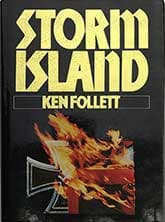 What might have happened
What might have happened
A superior espionage novel can engage your sympathy with opposing characters. Although at the fantasy end of the thriller spectrum one can dreamily identify with a super-heroic agent, like James Bond, while cheering for the demise of a villainous mastermind out to destroy the world, the more sophisticated thriller portrays relatable figures on both sides....
Eye of the Needle
 From Russia with love and death
From Russia with love and death
After spending a good part of a summer living in and out of War and Peace, I was astounded to read that in his latter years Leo Tolstoy disdained it. The novel, whose title has become shorthand for monumentally great literature, was elitist, the author is supposed to have said. It presented a romantic entertainment for the aristocracy....
War and Peace
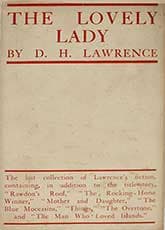 Rockin' the coming of age story
Rockin' the coming of age story
D.H. Lawrence's "The Rocking-Horse Winner" is one of those stories frequently found in school anthologies and taught to English literature students. Or at least it used to be. For educators, part of the story's classroom appeal may be that it features a child in a quasi-supernatural tale—unlike Lawrence's mainstream novels notorious for....
The Rocking-Horse Winner
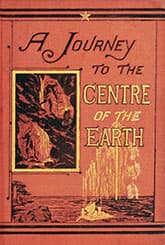 Disbelief happily suspended
Disbelief happily suspended
The great thing about Jules Verne's stories of fantastic voyages is that they don't come across as fantastic. At least while we're reading, we believe we could—if we dared—fly across the world in a balloon, fire a rocket at the moon, travel under the seas...or plumb the depths of volcanoes toward the centre of the earth. Some of these trips we know....
A Journey to the Centre of the Earth
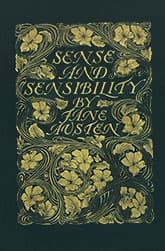 Full-blown birth of the Austen novel
Full-blown birth of the Austen novel
In the dichotomy suggested in the title, Jane Austen in her first published work comes down conclusively on the side of sense over sensibility. It's supposed to be a study of two marriageable sisters with the eldest, Elinor, presenting her case for calm common sense in relationships, while the other, Marianne, flaunts her flamboyantly romantic nature....
Sense and Sensibility
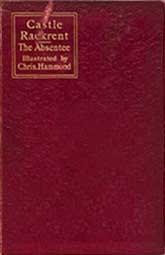 Tales from the big Anglo-Irish house
Tales from the big Anglo-Irish house
It's to the credit of
Castle Rackrent that it's usually taken to be a novel. By its meagre word count, the text constitutes a novella and—shorn of its introduction, footnotes and glossary—it is barely that. It verges on being a long story. But Maria Edgeworth's work reads like an old-style historical novel, perhaps the first such work. It's often cited as the prime example of....
Castle Rackrent
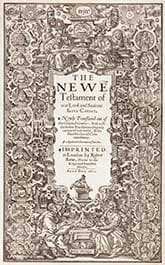 What's so great about the world's best seller?
What's so great about the world's best seller?
It's sometimes called "the greatest story ever told". But is it really? Is the
New Testament—or more precisely the gospel story within the
New Testament—even one of our best stories? Of course, when they make that "greatest" claim, Christians are usually judging their founding story for its religious messages. And why not? Taking the scriptures at face value....
The New Testament
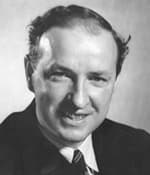 The quiet questioner
The quiet questioner
Late in life Morley Callaghan was apparently concerned people would remember him for one minor achievement: the little Canadian had knocked down the macho Ernest Hemingway in a boxing match refereed by F. Scott Fitzgerald. Callaghan preferred to be known for his novels. His lasting legacy however is his short stories. Along with the fact he knocked....
Morley Callaghan
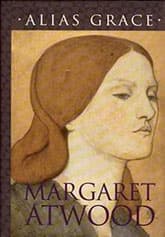 Did she or didn't she—and does it matter?
Did she or didn't she—and does it matter?
Alias Grace may be Margaret Atwood's best novel. It may not be her most popular (guessing that's
The Handmaid's Tale). Nor her most complex or elaborate (probably
The Blind Assassin). Nor her most impressive in sheer literary terms (several to choose from). Nor even her most socially significant (ditto). But the 1996 work has got some of all these qualities....
Alias Grace
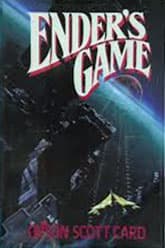 The endgame that spawned an endless series
The endgame that spawned an endless series
When I first finished
Ender's Game, before starting the second book in the series, I wondered what all the fuss was about. Oh, I enjoyed
Ender's Game all right. It was a real scifi page-turner. But I did not feel good about my enjoyment. Most of the novel concerns the training of a child, Andrew "Ender" Wiggin, to become leader of an expedition against....
Ender's Game
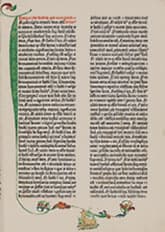 The jealous, vengeful, violent and occasionally loving word of God
The jealous, vengeful, violent and occasionally loving word of God
What wrecks the
Bible as literature is too much God. On the surface this may sound like an ignorant comment, prompting the response, "Well, what did you expect? It's a religious text and isn't religion all about gods?" But if we are indeed looking at
The Hebrew Bible or
Old Testament as a purported literary classic—the font from which all Western literature....
The Hebrew Bible / The Old Testament
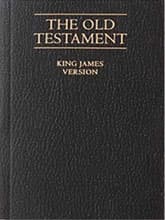 The man who survived the deep
The man who survived the deep
The story of Jonah surviving in the belly of a whale—or a big fish, to be exact—is one of those tales that everyone in the Judeo-Christian or Islamic world has heard, whether or not they are religious. It's one of those stories that come to mind when people refer to great old stories of the
Old Testament.... But the tale of "Jonah and the Whale" is different....
The Book of Jonah
 The new novelism and the ever-passing now
The new novelism and the ever-passing now
"Deep down he's really shallow" might have been invented for Tom Wolfe's detractors to throw at him. His work is crammed with references to surface appearances, clothing styles, cultural bric-a-brac and even commercial brand names. The minutiae of modern life not only fill his descriptive paragraphs but dominate the inner lives of his characters. Deep down, people are....
Tom Wolfe
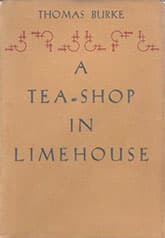 Murder ahead of time
Murder ahead of time
In 1949 "The Hands of Mr. Ottermole" was selected by critics as the best mystery story of all time and thirty-five years later The Mystery Writers of America voted Thomas Burke's effort one of the top four mystery and suspense tales for its
Mystery Hall of Fame. The story continues to appear in anthologies as one of the classics of the field. This may perplex....
The Hands of Mr. Ottermole
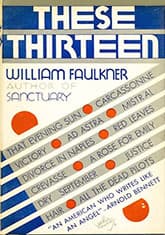 Entry-level Faulkner
Entry-level Faulkner
Critics find in William Faulkner's story, "A Rose for Emily", an allegory about the American South living in the past, decades after the Civil War, still holding on to the dreams of a supposed former glory, morbidly embracing its decadence. Something like that. And there is some of this in the story. There's some of it in nearly everything Faulkner wrote....
A Rose for Emily
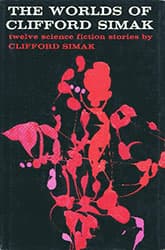 Lookin' out our front door
Lookin' out our front door
The Big Front Yard is a story Mark Twain might have produced if he were writing in the science fiction era. It's a far-fetched tale in a smalltown setting, featuring a fast-talking entrepreneur who faces with slyly cynical humour the bizarre situation he's been thrown into. In Clifford D. Simak's short novella, Hiram Taine finds his property being turned into an interplanetary....
The Big Front Yard
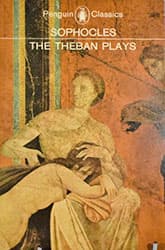 As fate would have it
As fate would have it
For a modern reader or playgoer, the ancient drama of
Oedipus Rex can be startlingly accessible. There is little of the struggle through the language that one experiences with even more recent plays, such as Shakespeare's. At least part of that ease may be due to the work of translators, aiming to make ancient Greek dramatics more appealing to today's readers....
Oedipus Rex
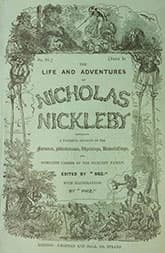 The hero without qualities
The hero without qualities
Nicholas Nickleby is Charles Dickens still trying to work out how to sustain a novel. It's usually classified as his third novel, coming hard on the heels of the sketchy Pickwick Papers and the diversely stitched together
Oliver Twist. As in
Oliver Twist, the narrative of Nicholas Nickleby presents a panoply of tragic, satiric, suspenseful and melodramatic elements. But....
Nicholas Nickleby
 The miserable truth
The miserable truth
Les Misérables is one of the few books in translation English speakers know by its original title, in part because they are familiar with the name (or its ghastly abbreviation
Les Miz) from its popular film and stage productions. But that familiarity doesn't mean they know the book itself well, for those adaptations cover only a small fraction....
Les Misérables
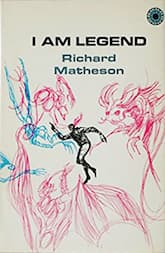 A legendary story
A legendary story
Critics may not have known what to make of it when it came out in 1954, but what has been made of
I Am Legend since then has been several fields of popular fiction, multiple movie adaptations, lots of knockoffs, and works inspired in all media. It's probably safe to say many more people are familiar with parts of Richard Matheson's story through its impact on writing....
I Am Legend
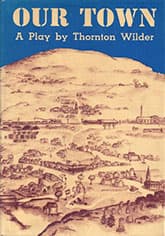 Theatre that metas
Theatre that metas
On the early covers of Thornton Wilder's play,
Our Town, the illustration shows a small community perched on the side of a lofty hill or mountain, giving a kind of aspirational feeling to the artwork. What isn't made clear though is that the bare hill above the community is where the graveyard is located—the cemetery that in the last part of the play is depicted as the....
Our Town
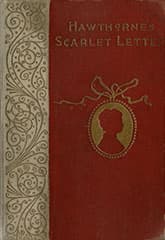 The dark passions of early America
The dark passions of early America
Everyone knows the general story of
The Scarlet Letter as referenced in the title. A young, married woman in an early American colony, Hester Prynne, becomes pregnant from an affair with a man whose name she refuses to name and is forced to wear the letter "A"—for adultery—the rest of her life. Described like this, the novel seems to be an early feminist tale....
The Scarlet Letter
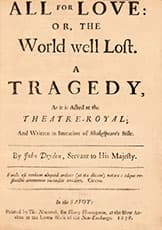 Improving on Shakespeare
Improving on Shakespeare
John Dryden's tragedy,
All for Love, is basically a retooling of William Shakespeare's
Antony and Cleopatra. You won't find Shakespeare's Cleopatra drama on the list of greatest-ever plays, as it's not one of the Bard's very best. It's more in the middle of the pack, partly due to its wide-flung characters and its complicated subplots of battles, intrigues and....
All for Love
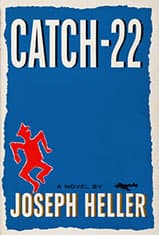 War as you've never seen it before
War as you've never seen it before
Whenever he was told he's never written anything else as good as
Catch-22, Joseph Heller was tempted to reply, "Who has?" A bit of hyperbole. There are plenty of modern novels as good as, or better than,
Catch-22. But really nothing quite like it. In 1961 when it was published,
Catch-22 was unprecedented for its theme, its style, its brand of humour....
Catch-22
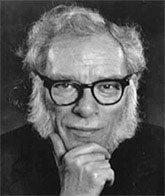 Best of the bad old golden greats
Best of the bad old golden greats
Isaac Asimov may be the worst great writer I can think of. His prose is workmanlike at best, his characters are emotional ciphers, his dialogue is functional, his plots are more like giant puzzles than any credible unfolding of events involving real people, and stylewise he blithely breaks every rule of Fine Writing. He doesn't care. And know what? Neither do I....
Isaac Asimov
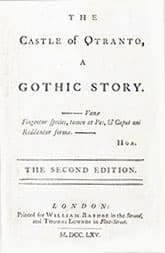 The horrible influence
The horrible influence
Horace Walpole's
The Castle of Otranto is one of those "classic" works that is better known for its impact in its time that for its subsequent readability. It's more influential than admired. In fact, any reader today is likely to find it laughable. And it's not supposed to be a comedy. Its supernatural and bloody story is meant to be delectably horrifying....
The Castle of Otranto
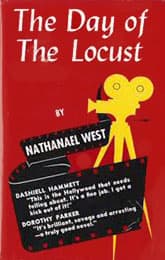 Another end of days
Another end of days
The Day of the Locust was so underrated in 1939 when it came out and in the years immediately following author Nathanael West's death in 1940. So when critics eventually rediscovered the man's work's they overcompensated for their earlier neglect by praising it to the skies. In some quarters
The Day of the Locust has been lauded it as one of the most....
The Day of the Locust
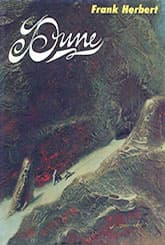 Rising and sinking in the sand
Rising and sinking in the sand
Dune's timing was perfect. Launched in the mid-sixties around the beginning of the modern environmental movement, Frank Herbert's ecology-conscious science fiction novel and its many sequels and adaptations have ridden the public zeitgeist well into the twenty-first century. It also helps that the mystically tinged works have coincided with....
Dune
 Love story emerges from satire
Love story emerges from satire
Northanger Abbey is the satire on previous popular literature Jane Austen had to write before she could get down to creating her own classics. It often happens that in a first novel an author is driven to imitate and have fun with the work of one or more predecessors who have been big influences during the formative years. A sort of ritual....
Northanger Abbey
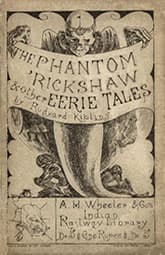 The sun setting on empire
The sun setting on empire
An unfair charge against Rudyard Kipling's story, "The Man Who Would Be King", is it's not very credible. Full of British Empire arrogance that can imagine a couple of white, soldierly ne'er-do-wells could manage incredible feats of perseverance to venture from northern India over frigid, mountainous terrain into foreboding, supposedly uncivilized....
The Man Who Would Be King
 The mild-unmannered author
The mild-unmannered author
Richard B. Wright is a Canadian writer of ordinariness. Not that his novels are banal or he's a dull writer—they aren't and he isn't. But he takes as his subjects the lives of ordinary people—middle or lower-class folks trying to do the right thing while seeking some measure of comfort. Their travails are related in an unpretentious, unadorned style....
Richard B. Wright
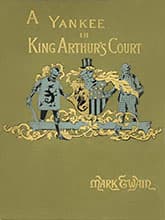 Mark Twain's dark ages
Mark Twain's dark ages
If your first exposure to Mark Twain's time travel tale was the Disney or other screen adaptations, you may be shocked by your reading of
A Connecticut Yankee in King Arthur's Court. Shocked by how rough it is. Not just satirical in the genial way Twain is usual thought of but downright angry, bitter and often vicious. And this isn't even....
A Connecticut Yankee in King Arthur's Court
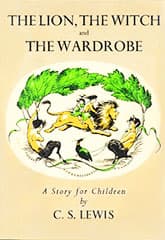 The never-ending battle
The never-ending battle
Let's deal with the religious aspect of the Narnia works right off the top. The idea that
The Lion, the Witch and the Wardrobe (1950) and its successive novels present a Christian allegory is raised by both detractors and adherents. It's offered as a reason to either dismiss or embrace C.S. Lewis's fantasy series. One opposing author has even created a....
The Chronicles of Narnia
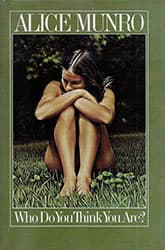 The long and short of a woman's story
The long and short of a woman's story
"The Beggar Maid" is one of Alice Munro's novelistic stories. Not that it is overly long—a little longer than the average modern story perhaps, though well short of longer literary forms. But after reading it, you might feel you've taken in at least a novella's worth of narrative—like a novel without all the padding. If you've often found yourself bogging down....
The Beggar Maid
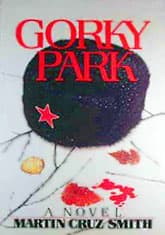 Murder in a Grey World
Murder in a Grey World
Gorky Park was quite the sensation when it came out in 1981, as it presented an American-style detective story in the previously unexplored setting of the Soviet Union. And it still seems to entrance readers for whom the concept of a murder investigation in a supposedly socialist country is a novelty. To others for whom this is no longer a startling idea....
Gorky Park
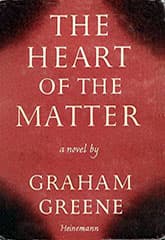 Sorry about how life has gone
Sorry about how life has gone
By rights, there should be little interest remaining in the 1948 story of a white colonialist policeman, wracked with Catholic guilt over his lapsed religion, corruption, career failures and duplicitous relationships.
The Heart of the Matter was a massive hit when it came out and has remained high on lists of the great novels of the twentieth century. But....
The Heart of the Matter
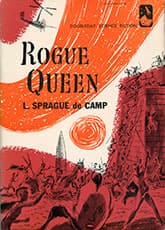 The taming of the rogue
The taming of the rogue
Rogue Queen is a novel that was ahead of its time in the waning years of science fiction's Golden Age but is practically archaic since the field's several resurgences. It's still more than readable though and has a corny kind of old-fashioned charm today. Did we really think this was provocative stuff not so long ago? We may still find it so....
Rogue Queen
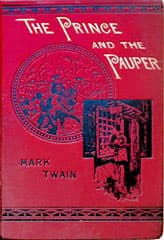 The bite in an ageless tale
The bite in an ageless tale
It's easy to overlook Mark Twain's bite in
The Prince and the Pauper. The social criticism is not as sharp as in some of his later novels, like
The Adventures of Huckleberry Finn or
A Connecticut Yankee in King Arthur's Court. There's little of the outright sarcasm or open attack on institutions and other writers found in his later commentaries....
The Prince and the Pauper
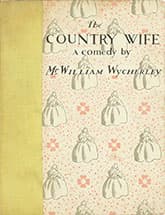 What's love got to do with it?
What's love got to do with it?
Your first go at
The Country Wife may leave you mystified and mixed up. Especially over all the criss-crossing plots involving characters who can scarcely be told apart. They're all randy, witticism-spouting, wealthy layabouts conspiring to get into each others' pants. This may be part of William Wycherley's aim....
The Country Wife
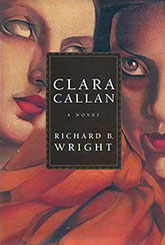 The Claras in our lives
The Claras in our lives
What is it with Canadian writers and their fixation on solitary women? Off the top of my head I can list nearly a dozen novels that explore the private lives of unmarried, widowed, or divorced females struggling through what appear from the outside as mundane existences, usually recalled in later years. Don't get me wrong. I'm not complaining....
Clara Callan
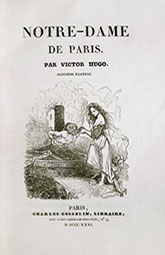 A deformed masterwork
A deformed masterwork
Thanks in part to movies based on it,
The Hunchback of Notre-Dame calls up images of Gothic horror in the public imagination. The novel is associated with other dark nineteenth-century classics like
Frankenstein, Dracula and
Dr Jekyll and Mr Hyde. This is wrong-headed in so many ways. It makes a preternatural monster out of a character....
The Hunchback of Notre-Dame
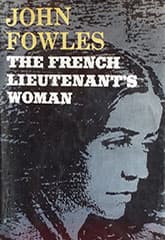 The changing past
The changing past
Sometimes it seems we in the English-speaking world have spent the entire twentieth century trying to shake off the repressions of the Victorian era. The rebellious 1960s, for example, may have prided themselves on rejecting the lifestyles and mores of the supposedly placid preceding decade, but the cultural upheaval of that time could as easily....
The French Lieutenant's Woman
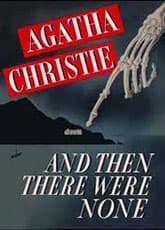 Ten little problems with world's most popular mystery
Ten little problems with world's most popular mystery
Despite issues with its objectionable titling over the years,
And Then There were None has been not only the most popular novel by Agatha Christie during her long, prolific career, but one of the best-selling books of all time—ranked only a few spots behind the
Bible. It's also one of the Christie books that you have to read quickly, so as not to....
And Then There Were None
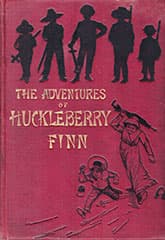 The changing world of Huck Finn
The changing world of Huck Finn
The Adventures of Huckleberry Finn is one of those modern classics you should re-read every ten years or so. Partly because, like most classics, it keeps giving, offering up more and different aspects each time. Read in youth, it may come across as the adventure story promised in the title. Unlike
The Adventures of Tom Sawyer, to which....
The Adventures of Huckleberry Finn
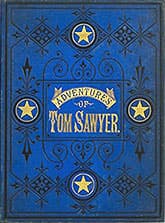 The good bad boy
The good bad boy
In our world the escapades of young Tom Sawyer are recounted in the shadow cast by his more famous friend, Huckleberry Finn. Yet, during author Mark Twain's life,
The Adventures of Tom Sawyer was his most popular work. Which should not surprise us. Today Twain is known and revered for his abrasive wit, his deft parody, his....
The Adventures of Tom Sawyer
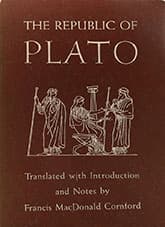 The philosopher who would be king
The philosopher who would be king
It is hard to know how to classify the philosophical classic
Republic, or any writing by Plato, as literature. Or even to know whether it is a literary work. It's published writing, so it is literature in the broadest sense. But does it deserve a place among the novels, stories, plays and poetry we consider creative literature? Like most of Plato's works....
Republic
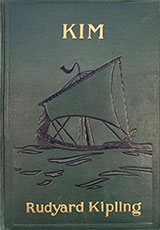 The burden of reading Kipling's masterwork
The burden of reading Kipling's masterwork
If Rudyard Kipling were to publish his most acclaimed novel today, he would likely face more than the usual charges of colonialism and imperialism that have been levelled at him through much of the twentieth century. No doubt he would also be attacked for cultural appropriation in
Kim, maybe even racism. For in this era it is hard to read some parts of
Kim....
Kim
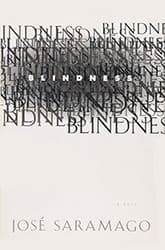 What we see in the light
What we see in the light
Blindness may be the most popular of José Saramago's novels, possibly because it is one of his easiest to get into. From the beginning the plot reads like a mysterious science fiction story—one of those tales in which a virus or unseen enemy gradually takes over. But rather than focus on humanity's resistance to this mysterious phenomenon....
Blindness
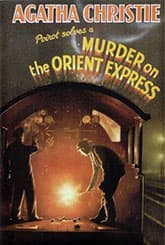 Re-riding the mystery train
Re-riding the mystery train
A lot of mystery novels don't stand up to repeated readings. Makes sense. Once you know the ending—once the mystery has been solved—the tension in the slow buildup to the conclusion is dissipated. Plot holes and thin characterizations, overlooked in the first rush to resolution, become glaringly obvious the second time through. Best to close....
Murder on the Orient Express
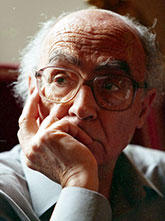 At ease in the off-centre
At ease in the off-centre
José Saramago may be the most interesting writer of the late-twentieth century and early years of the next. And possibly the most bewildering. He was a hardline communist whose work was hailed by such establishment critics as the late Harold Bloom who once ranked him among the world's few living geniuses. Trained as a mechanic and metalworker....
José Saramago
 Too many stupid people
Too many stupid people
The novel
Make Room! Make Room! was published right in the middle of the boom in warnings about overpopulation and depletion of resources in the 1960s and early 1970s. It actually preceded a number of nonfictional works, like
The Population Bomb (1968) and
The Limits to Growth (1972), that raised the alarm. In fact, Harry Harrison says....
Make Room! Make Room!
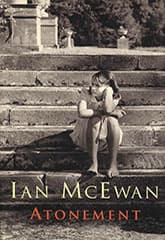 Emotional and intellectual roller coaster
Emotional and intellectual roller coaster
It's hard not to think "classic" as you're reading
Atonement. Especially in the first half with its scenes of country estate life, reminiscent of Jane Austen or the Brontë novels, as experienced through the perspective of a thirteen-year-old girl, Briony Tallis. The epigraph to Ian McEwan's novel is actually a passage from
Northanger Abbey, introducing....
Atonement
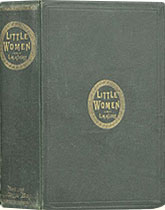 Kind hearts and a mother's wisdom
Kind hearts and a mother's wisdom
All fiction—all art or entertainment really—is either disturbing or comforting. Most both disturbs and comforts in varying measures. It's why we read: to experience ups and down of life besides our own. Some works create tensions and dangers to stir us up and then resolve them happily to relieve us. Others keep digging to awaken....
Little Women
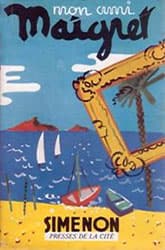 The mind games of Maigret
The mind games of Maigret
My Friend Maigret is often ranked among the best of Georges Simenon's Inspector Maigret crime works, if not
the best. Which is curious because the novel is somewhat of an anomaly—not the usual Maigret. Which, come to think of it, may not be so strange after all. This short novel's differences from all the other short Maigret novels....
My Friend Maigret
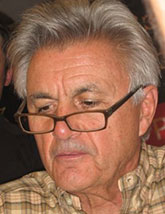 Containing the crazy
Containing the crazy
John Irving writes big books. Yes, long novels—longer than most contemporary works you find on the bestseller lists. But big in so many other ways. Big characters, big themes of the day, big and sprawling stories. And, most gloriously, he's got that knack of creating worlds. Give the first fifty pages—sometimes the first five pages of almost any...
John Irving
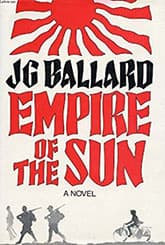 A boy's adventures in the furnace
A boy's adventures in the furnace
After his post-apocalyptic tales of psychological horror, after his scandalous work on human mangling and perverse sexuality, J.G. Ballard turned to producing his most conventional, biographical and realistic novel in 1984. And it proved to be his most deeply disturbing work yet.
Empire of the Sun is not disturbing in the way of superficially shocking....
Empire of the Sun
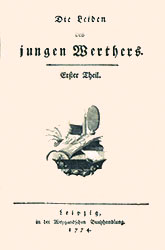 The romance to end romanticism
The romance to end romanticism
Partway through
The Sorrows of Young Werther you might wonder if this is actually a parody of romantic stories. Werther's attachment to his beloved Charlotte, Lotte for short, can come across as a ridiculously over-the-top passion. Or so it may appear to a modern reader. What Werther calls a love for all eternity we would....
The Sorrows of Young Werther
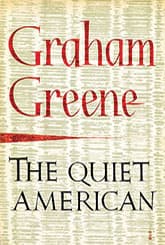 The unquiet Brit and the Americans
The unquiet Brit and the Americans
The biggest obstacle to properly appreciating
The Quiet American is getting past Graham Greene's uncanny political prescience. In the 1950s, when Vietnam wasn't yet on the radar for most Western readers, when U.S. foreign policy and military power were still widely seen as forces to make the world safe for democracy....
The Quiet American
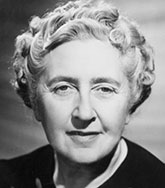 The great puzzle maker
The great puzzle maker
The least suspicious suspect did it. The victim did it. No one did it. Everyone did it. The narrator did it. The detective did it.... In her novels, stories and stage productions, Agatha Christie rang every possible change on the standard whodunit to keep her readers guessing—usually incorrectly. However one-dimensional her characters....
Agatha Christie
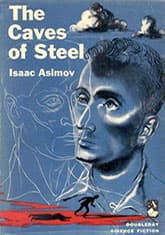 Murder in the middle
Murder in the middle
You could say Isaac Asimov always was a mystery writer. His early science fiction works were often light on action as his brainy, talkative characters sought answers to practical questions. Why did that robot act contrary to its programming? Where is that foundation hidden in the galaxy? But the young writer....
The Caves of Steel
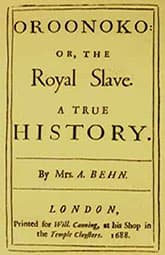 First great story of slavery
First great story of slavery
Aphra Behn's most famous work might disappoint a reader who has heard it's a staunchly anti-slavery, anti-colonialist or feminist work. One may find
Oroonoko is none of those things, at least by modern standards. Behn was a writer in the latter seventeenth-century period known in England as the Restoration, when....
Oroonoko
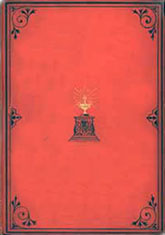 The Vril of it all
The Vril of it all
It's an irony of sorts that Edward Bulwer-Lytton's most influential book may be his last, one of his shortest, written in a genre different from everything else he had done to that point, and not even published under his own name. Yet it was greatly admired and popular in its time. But don't let any of that make you think....
The Coming Race
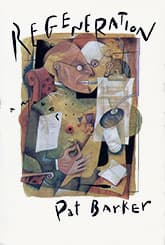 The war which is never over
The war which is never over
It may seem odd an acclaimed series of novels near the end of the twentieth century should feature characters from the period of the First World War. Or that issues from that war time should continue to so resonate with the reading public. At least part of the popularity of the
Regeneration novels can be explained by....
The Regeneration Trilogy
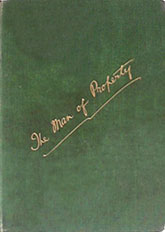 The Forsytes take the stage
The Forsytes take the stage
It is difficult to separate
The Forsyte Saga from the justly acclaimed films and television series that have been based on it. The adaptations have enchanted everyone who followed them, most of whom have likely never read the books. But this is actually a compliment to the books' author. John Galsworthy's best-known work....
The Forsyte Saga
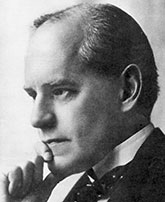 Passing greatness
Passing greatness
Some writers are said to be so much of their own time they cannot be of all time. This is supposed to be particularly true of writers whose work is a social critique of their times. Once the times being critiqued have long passed, what should we care for the critique? Hence—by this line of thinking—the decline of interest....
John Galsworthy
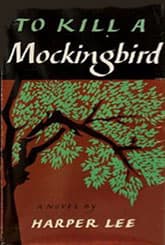 Of time, place and race
Of time, place and race
Anyone reading Harper Lee's
To Kill a Mockingbird for the first time may be surprised to find it is not entirely about racism. The trial of a black man, Tom Robinson, on a spurious charge of rape, for which the novel is famous, does not become a focus of the plot until about midway. In fact, blacks as a whole are invisible....
To Kill a Mockingbird
 The price of being different
The price of being different
If you're a Jane Austen aficionado, particularly loving her headstrong heroines picking their plucky but principled way through the constricting marriage plots of the time,
Mansfield Park probably comes as a big disappointment. However, if you're cool on Austen's more popular works—well, you won't much like....
Mansfield Park
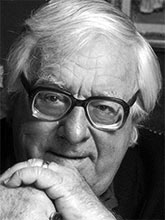 The beloved time-tripping, space-jumping, shape-shifting....
The beloved time-tripping, space-jumping, shape-shifting....
Everyone loves Ray Bradbury. I can't think of another writer who is so universally adored across all genres and right across the spectrum of writers, critics and readers. Even on the rare occasion when one of Bradbury's books is panned, it seems to be done reluctantly as though the reviewer were embarrassed to report....
Ray Bradbury
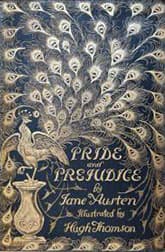 An engagement that endures
An engagement that endures
Pride and Prejudice has one of the most skilful beginnings in literature. It opens of course with that famous "truth universally acknowledged" and its equally delicious corollary (see "First lines"). These could introduce almost any Jane Austen novel—delivered with the slightest hint of snarkiness to show Austen herself is in on....
Pride and Prejudice
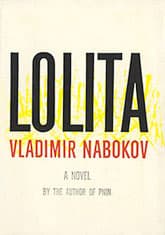 Falling for the charm of the predator
Falling for the charm of the predator
Lolita is the kind of book that grows thicker every time you read it. The first time you may race through to take in the plot of the adult male who loves and loses a preadolescent girl
—still shocking more than half a century after its publication. Still shocking in how
non-shocking it seems, as you first read it in Humbert Humbert's calm....
Lolita
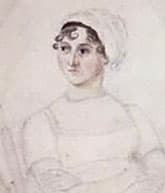 This lady writer's not for beating
This lady writer's not for beating
Mark Twain famously defined the ideal library as one with no Jane Austen books. He seemed to enjoy ridiculing Austen's work, reading of which made him "feel like a barkeeper entering the Kingdom of Heaven". At least some of his outlandish detestation of Austen may have been an act, but I see his point. Really, how....
Jane Austen
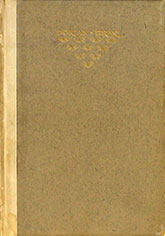 Taking the pith out of artistic ideals
Taking the pith out of artistic ideals
Everyone knows the central conceit of
The Picture of Dorian Gray: a beautiful young man remains unblemished by age, while his painted portrait, hidden from public sight, grows older and corrupted by moral degradation. It's become a common compliment to a friend's continued youthfulness to say "You must have....
The Picture of Dorian Gray
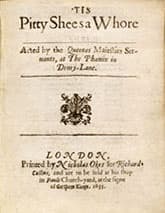 Pity us all
Pity us all
Perhaps the most shocking thing about
'Tis Pity She's a Whore is that it still shocks. John Ford's plays were written in a period of increasingly scandalous theatre. After the days of Marlowe, Shakespeare and Jonson, English drama took a more shocking and grisly turn that critics have termed "sensationalist"....
'Tis Pity She's a Whore
 A monk and a poet walk into a bar
A monk and a poet walk into a bar
For certain sensibilities, the music to play when seduction is on the menu is Leonard Cohen songs—
any Leonard Cohen songs. They're seldom romantic in the style of the love songs in the Great American Songbook or modern pop traditions. But they have a quality of intimacy—at once melancholy and celebratory....
Leonard Cohen
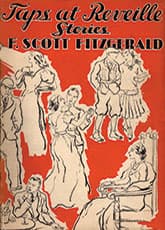 Recovering from the past
Recovering from the past
The beginning of F. Scott Fitzgerald's story "Babylon Revisited" with an expatriate American visiting Paris, scene of his carousing in the 1920s and now deserted by the old gang, may put a later reader in mind of Hemingway's look back at that era in
A Moveable Feast (1964). The American in the short story is obviously a....
Babylon Revisited
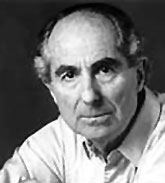 The whole story of a modern writer
The whole story of a modern writer
Philip Roth is a writer I'd been reading a long time, checking out a new novel every couple of years, catching up on older efforts, without ever thinking of him as being one of the "greats". Just Philip Roth, ruminating on what it's like to be a young-then-middle-age-then-older, male, middle-class, Jewish, sexually....
Philip Roth
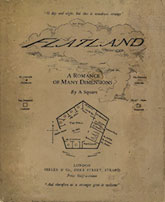 Curious and less curiouser
Curious and less curiouser
Flatland is a curiosity. This novella, fable, allegory, satire or math lesson—whatever it's supposed to be—is often counted as a classic science fiction work. From a bare description of
Flatland, I could see why. A hypothetical world of only two dimensions is described within which all things, including the inhabitants, are....
Flatland
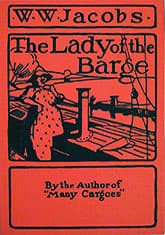 The horror of unintended consequences
The horror of unintended consequences
"The Monkey's Paw" is a story so well known for its plot that its writing and style are sometimes forgotten. In fact, it seems not to have been written by anyone at all, but has filtered down to us through the ages as folk tale or fable. Which is unfair to accomplished short story author W.W. Jacobs who wrote and published....
The Monkey's Paw
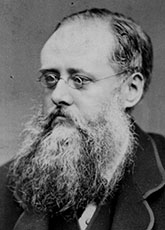 Author provocateur
Author provocateur
A case could be made for Wilkie Collins as one of the most influential writers of his era, his impact still being felt today in every kind of popular fiction. As much as, or more than, the iconic mid-Victorian figures of Dickens, Thackeray and Eliot. The argument would go something like this: First, look at his most...
Wilkie Collins
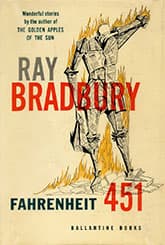 Burning questions
Burning questions
It may seem that Ray Bradbury's
Fahrenheit 451 is becoming less relevant these days, as hard-copy books are at risk of disappearing, pushed aside by digital communications. Without paper media, warnings about book-burning may seem increasingly old-fashioned. For book-burning is what
Fahrenheit 451 is....
Fahrenheit 451
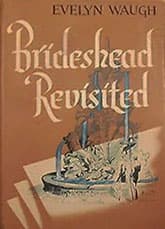 Last visit to Brideshead
Last visit to Brideshead
Why do we still read
Brideshead Revisited? An account of aimless, upper-class, young men wasting their time at Oxford University in hedonistic pursuits. Until the story is swallowed by the larger theme of an intensely Catholic, intensely self-absorbed, aristocratic family. Presented nostalgically and....
Brideshead Revisited
 The puzzle that is Palliser
The puzzle that is Palliser
The problem with Charles Palliser as a famous novelist is that in every book he tries something radically different. He's the ultimate experimental writer, which makes him a bold and always interesting writer for those who appreciate such experiments but also makes it hard for him....
Charles Palliser
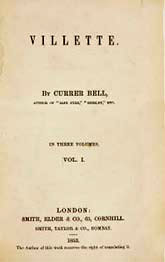 Why don't more people love this novel?
Why don't more people love this novel?
For a few,
Villette is Charlotte Brontë's big book—not just the longest of her four novels, but the most realistic,most interesting and most progressive. I fully understand this. There are times reading Villette I have to turn back to the title page to confirm that, yes, this really was written in the middle....
Villette
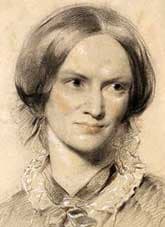 Sister who blazed longest and hardest
Sister who blazed longest and hardest
Charlotte was the longest living of the three writing Brontë sisters, almost making it to age forty, and her output was by far the most extensive and most popular in its day. Yet many know her best as the sister of Emily Brontë, author of the revered
Wuthering Heights, which she championed....
Charlotte Brontë
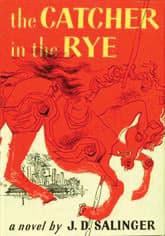 Some get caught and some don't
Some get caught and some don't
Few novels divide readers as
The Catcher in the Rye does. This may sound like a bizarre thing to say, since J.D. Salinger's
novel has been wildly popular since it came out in 1951. It's been lauded as changing the course of post-Second World War
writing—at least American writing—as much as....
The Catcher in the Rye
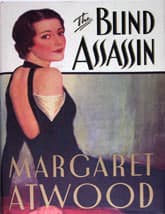 Lost between the levels
Lost between the levels
Let's see. Margaret Atwood writes her Booker Prize-winning novel
The Blind Assassin about an elderly woman writing her
memoirs about her and her sister's lives, the younger sibling having written an infamous novel called
The Blind Assassin,
which recounts her trysts with a political....
Blind Assassin
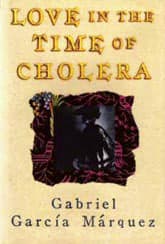 Love, the beautiful disease
Love, the beautiful disease
Love in the Time of Cholera is a favourite novel for lovers who take from it something like "Love is forever" or
"Love conquers all" or "Follow your heart and you'll eventually find your one great love." Yet, Gabriel García Márquez's
story also appeals to cynics who find the yearning, love-obsessed....
Love in the Time of Cholera
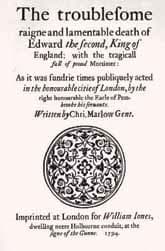 Love's labours punished
Love's labours punished
It can be difficult to read
Edward II today as a Christopher Marlow play. One keeps sliding into thinking of it as minor
Shakespeare—you know, all those early plays with kings and numerals in their titles. Partly this is a matter of timing.
We may appreciate Marlowe's own earlier plays, especially....
Edward II
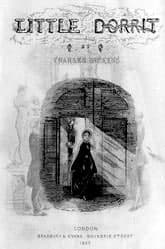 Killing social evil with kindness
Killing social evil with kindness
You could make a case that every Charles Dickens novel is atypical in some way, but
Little Dorrit really is a special case.
For one thing, it's been called his most political novel—the book that George Bernard Shaw said converted him to socialism and
that other great figures considered an example of....
Little Dorrit
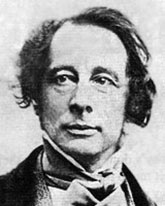 The writer to emulate—or to beat
The writer to emulate—or to beat
Chances are, you think of Charles Dickens in one of two opposite ways. As
the writer, the very icon of the great and popular
author for the masses, against whose work all subsequent fiction is to be measured. Or as the epitome of an old-fashioned, wordy,
sentimental style that had to be swept away before....
Charles Dickens
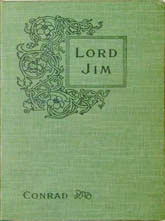 The in-between romantic
The in-between romantic
Lord Jim is one of the Joseph Conrad novels that has me thinking at places "This may be the best writing I've ever read"
and at other places "Come on, get on with it, would you!" Part of this ambivalence I put down to Conrad's position—along with
a few other British and American writers like....
Lord Jim
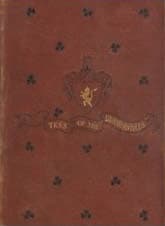 Tess the too pure
Tess the too pure
When
Tess of the D'Urbervilles first came out in book form in late 1891, it was in equal parts hailed as Thomas Hardy's
masterpiece and condemned as a moral outrage. The latter opinion was due mainly to the novel's sympathetic treatment of the
titular country girl who had sex—and a child....
Tess of the D'Urbervilles
 The seriously sick artist
The seriously sick artist
It's hard to take Edgar Allan Poe seriously as a literary figure.
Not his fault. Poe took writing very seriously as an art form. His critical works show this. And his stories have proven
tremendously influential in both the literary world and in popular culture. Ah, yes, but about the culture....
Edgar Allan Poe
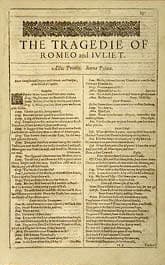 Star-crossed lovers live on, alas
Star-crossed lovers live on, alas
Possibly Shakespeare's best-known play. Everyone knows the story of star-crossed lovers who defied their families—the
feuding Capulets and Montagues—and ended their lives tragically.
Romeo and Juliet is a play with something for
everyone: romance, intrigue, sword-fighting, wonderful....
Romeo and Juliet
 Comedy light and dark
Comedy light and dark
To appreciate Molière's comic genius you should probably see
the plays performed. Reading them, you can get the idea they're lightweight, not much above the average episode of
Three's
Company, but with fewer jokes. You've got to see actors taking full advantage of the satiric nuance in the lines....
Molière
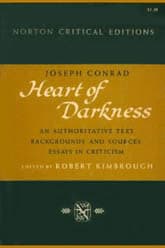 Where the dark comes from
Where the dark comes from
You think you know Joseph Conrad's
Heart of Darkness even if you haven't read it in years, or ever. It's been widely
taught in school, so its most famous lines ring with musty familiarity. Its plot has been adapted for all manner of media,
though usually in wildly divergent stories or in parody. It's part of....
Heart of Darkness
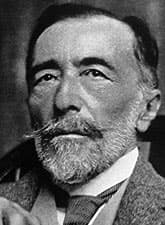 The great sea change
The great sea change
After having read so much Joseph Conrad—some forced upon me
as a student, some for pleasure—I still find it hard to tell whether I like his writing. I gather other readers have a similar
reaction. "Like" doesn't quite describe our appreciation of Conrad. There are certainly Conrad stories and parts of Conrad novels you become....
Joseph Conrad
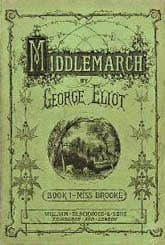 At the middle of the world
At the middle of the world
What's incredible about
Middlemarch, George Eliot's
masterwork, is how engrossing it is. I mean, this is a novel that deals with issues of art, education reform, scholarly research,
medical science and provincial British politics of the early nineteenth century—hardly the stuff of page-turning popularity. Oh, yes, and also....
Middlemarch
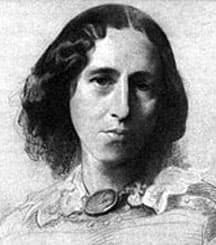 The worlds of George and Marian
The worlds of George and Marian
Calling her a great female writer—even the greatest—may be an insult to
George Eliot. Eliot distanced her own work from that
of other writers of her sex, deriding "silly novels by lady novelists", purportedly even criticizing the celebrated Jane
Austen for dealing with trivialities. It is often suggested Eliot took....
George Eliot
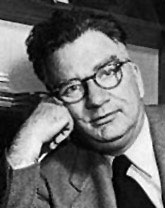 After the fall
After the fall
For a time, I thought of James M. Cain as an also-ran of American writing. On the third or fourth pillar below the greats in the literary pantheon. In the less exalted gallery of crime writers, he would come well after the holy trinity of Hammett, Chandler, and Macdonald—a commercial writer....
James M. Cain
 The original crowd-pleaser
The original crowd-pleaser
This one has it all.
The Odyssey is not only a great romantic, adventure epic, but it's terribly realistic in its depiction of human nature and a brilliantly crafted narrative. Authors today could learn from how Homer lays out his plot and plays the characters off against each other for maximum....
The Odyssey
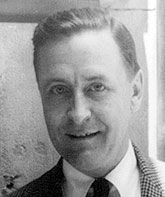 The butterfly who became self-conscious
The butterfly who became self-conscious
Before Francis Scott Fitzgerald died at age 44, he thought he was a failure. His obituaries described him as an obscure writer who never fulfilled his early promise. The second printing of
The Great Gatsby sat unsold fifteen years after the book's publication. Twenty-odd years later, Fitzgerald was....
F. Scott Fitzgerald
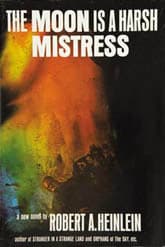 Writing may be an even harsher mistress
Writing may be an even harsher mistress
The Moon Is a Harsh Mistress has much—maybe too much—to appeal to followers of all Robert Heinlein's diverse interests. For science fiction fans, with an emphasis on
science, Earth's moon may be set up and how communication and transportation may be arranged—not mention the story of a computer....
The Moon Is a Harsh Mistress
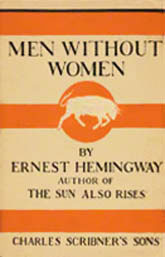 But you think about it nonetheless
But you think about it nonetheless
When they made a movie of "The Killers" in 1946 they spent only about fifteen
minutes telling Ernest Hemingway's entire story from two decades earlier. The rest
of the screen time they devoted to fleshing out the narrative, showing at great
length how the situation depicted in the story came about....
The Killers
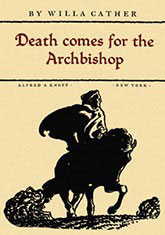 Strangers in their own land
Strangers in their own land
Death Comes for the Archbishop is often considered Willa Cather's masterpiece and is on several
lists as one of the greatest novels of the twentieth century—which may be surprising if you read
it alongside other American literature that came out around the same time. Consider, Fitzgerald's....
Death Comes for the Archbishop
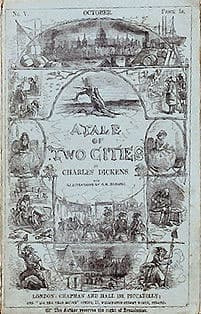 The human mystery
The human mystery
It's the most political of Charles Dickens's novels, it's the least political—even anti-political—of Dickens's novels in some ways. But its position on politics, revolution, mob rule, democracy and reformism has tended to dominate the discussion of
A Tale of Two Cities. The first time I read the novel, it was a....
A Tale of Two Cities
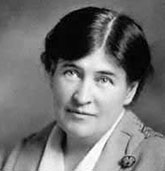 Still 'relevant'
Still 'relevant'
Willa Cather is one of those quietly achieving American writers, whose works are quietly appreciated in the shadow of the era's Great Writers...but, going on a century later, are still being quietly appreciated when many of the once great ones are no longer read. She did have a spell of....
Willa Cather
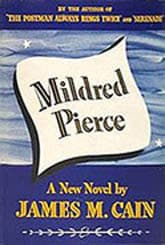 Daughter dearest
Daughter dearest
If your exposure to James M. Cain was his earlier short novels, like
The Postman Always Rings Twice or
Double Indemnity, or if it came via the 1945 Joan Crawford film adaptation of this novel, then you may be pleasantly surprised by
Mildred Pierce. For although those other books and that movie are terrific....
Mildred Pierce
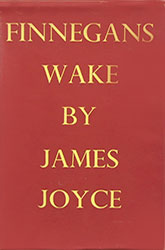 The great joke
The great joke
"Science split the atom and Joyce split the word." This summary of progress in the first half of the twentieth century has often been stated in reference to
Finnegans Wake. Joyce chops up words and fuses the syllables together again in new ways that supposedly uncover the links made by the subconscious....
Finnegans Wake
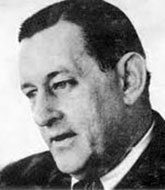 Interim status report
Interim status report
John O'Hara is the Rodney Dangerfield of American literature: he's never got the proper respect and he spent much of his career complaining about it. At best, he's been called a "first-rate second-rate writer" in a clever phrase that seems to nail his literary reputation. I'm here to change that....
John O'Hara
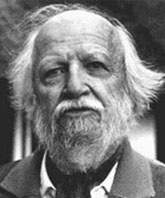 Odd man out
Odd man out
Other giants of science fiction who emerged during the genre's Golden Age were notoriously prolific. Isaac Asimov counted over five hundred books in his output, plus hundreds of stories and articles. Arthur C. Clarke, Ray Bradbury, Theodore Sturgeon, Robert Heinlein and others produced novels, stories and....
Alfred Bester
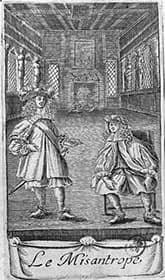 The critic of superficiality
The critic of superficiality
The Misanthrope reads at first like one of those overheated old Russian novels in which everyone talks and talks, all very excitedly, while the action happens elsewhere. It's certainly Molière's most reflective play. No wonder it has taken so long to become recognized as the great work it is: it doesn't include any of those audience-pleasing elements....
The Misanthrope
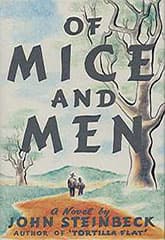 Small but punchy
Small but punchy
It has always seemed like the perfect little American novella. A poignant and disturbing story told seemingly effortlessly, involving simple folks on the fringe of society who turn out to be quite complex. But read
Of Mice and Men a second or third time and its clever structure
becomes more apparent.....
Of Mice and Men
Index to all work critiques | Index to all author critiques


 What might have happened
What might have happened From Russia with love and death
From Russia with love and death Rockin' the coming of age story
Rockin' the coming of age story Disbelief happily suspended
Disbelief happily suspended Full-blown birth of the Austen novel
Full-blown birth of the Austen novel Tales from the big Anglo-Irish house
Tales from the big Anglo-Irish house What's so great about the world's best seller?
What's so great about the world's best seller? The quiet questioner
The quiet questioner Did she or didn't she—and does it matter?
Did she or didn't she—and does it matter? The endgame that spawned an endless series
The endgame that spawned an endless series The jealous, vengeful, violent and occasionally loving word of God
The jealous, vengeful, violent and occasionally loving word of God The man who survived the deep
The man who survived the deep The new novelism and the ever-passing now
The new novelism and the ever-passing now Murder ahead of time
Murder ahead of time Entry-level Faulkner
Entry-level Faulkner Lookin' out our front door
Lookin' out our front door As fate would have it
As fate would have it The hero without qualities
The hero without qualities The miserable truth
The miserable truth A legendary story
A legendary story Theatre that metas
Theatre that metas The dark passions of early America
The dark passions of early America Improving on Shakespeare
Improving on Shakespeare War as you've never seen it before
War as you've never seen it before Best of the bad old golden greats
Best of the bad old golden greats  The horrible influence
The horrible influence Another end of days
Another end of days Rising and sinking in the sand
Rising and sinking in the sand Love story emerges from satire
Love story emerges from satire The sun setting on empire
The sun setting on empire The mild-unmannered author
The mild-unmannered author Mark Twain's dark ages
Mark Twain's dark ages The never-ending battle
The never-ending battle The long and short of a woman's story
The long and short of a woman's story Murder in a Grey World
Murder in a Grey World Sorry about how life has gone
Sorry about how life has gone The taming of the rogue
The taming of the rogue The bite in an ageless tale
The bite in an ageless tale What's love got to do with it?
What's love got to do with it? The Claras in our lives
The Claras in our lives A deformed masterwork
A deformed masterwork The changing past
The changing past Ten little problems with world's most popular mystery
Ten little problems with world's most popular mystery The changing world of Huck Finn
The changing world of Huck Finn The good bad boy
The good bad boy The philosopher who would be king
The philosopher who would be king The burden of reading Kipling's masterwork
The burden of reading Kipling's masterwork What we see in the light
What we see in the light Re-riding the mystery train
Re-riding the mystery train At ease in the off-centre
At ease in the off-centre Too many stupid people
Too many stupid people Emotional and intellectual roller coaster
Emotional and intellectual roller coaster Kind hearts and a mother's wisdom
Kind hearts and a mother's wisdom The mind games of Maigret
The mind games of Maigret Containing the crazy
Containing the crazy A boy's adventures in the furnace
A boy's adventures in the furnace The romance to end romanticism
The romance to end romanticism The unquiet Brit and the Americans
The unquiet Brit and the Americans The great puzzle maker
The great puzzle maker Murder in the middle
Murder in the middle First great story of slavery
First great story of slavery The Vril of it all
The Vril of it all The war which is never over
The war which is never over The Forsytes take the stage
The Forsytes take the stage Passing greatness
Passing greatness Of time, place and race
Of time, place and race The price of being different
The price of being different The beloved time-tripping, space-jumping, shape-shifting....
The beloved time-tripping, space-jumping, shape-shifting.... An engagement that endures
An engagement that endures Falling for the charm of the predator
Falling for the charm of the predator This lady writer's not for beating
This lady writer's not for beating Taking the pith out of artistic ideals
Taking the pith out of artistic ideals Pity us all
Pity us all A monk and a poet walk into a bar
A monk and a poet walk into a bar Recovering from the past
Recovering from the past The whole story of a modern writer
The whole story of a modern writer Curious and less curiouser
Curious and less curiouser The horror of unintended consequences
The horror of unintended consequences Author provocateur
Author provocateur Burning questions
Burning questions Last visit to Brideshead
Last visit to Brideshead The puzzle that is Palliser
The puzzle that is Palliser Why don't more people love this novel?
Why don't more people love this novel? Sister who blazed longest and hardest
Sister who blazed longest and hardest Some get caught and some don't
Some get caught and some don't Lost between the levels
Lost between the levels Love, the beautiful disease
Love, the beautiful disease Love's labours punished
Love's labours punished Killing social evil with kindness
Killing social evil with kindness The writer to emulate—or to beat
The writer to emulate—or to beat The in-between romantic
The in-between romantic Tess the too pure
Tess the too pure The seriously sick artist
The seriously sick artist Star-crossed lovers live on, alas
Star-crossed lovers live on, alas Comedy light and dark
Comedy light and dark Where the dark comes from
Where the dark comes from The great sea change
The great sea change At the middle of the world
At the middle of the world The worlds of George and Marian
The worlds of George and Marian After the fall
After the fall The original crowd-pleaser
The original crowd-pleaser The butterfly who became self-conscious
The butterfly who became self-conscious Writing may be an even harsher mistress
Writing may be an even harsher mistress But you think about it nonetheless
But you think about it nonetheless Strangers in their own land
Strangers in their own land The human mystery
The human mystery Still 'relevant'
Still 'relevant' Daughter dearest
Daughter dearest The great joke
The great joke Interim status report
Interim status report Odd man out
Odd man out The critic of superficiality
The critic of superficiality Small but punchy
Small but punchy